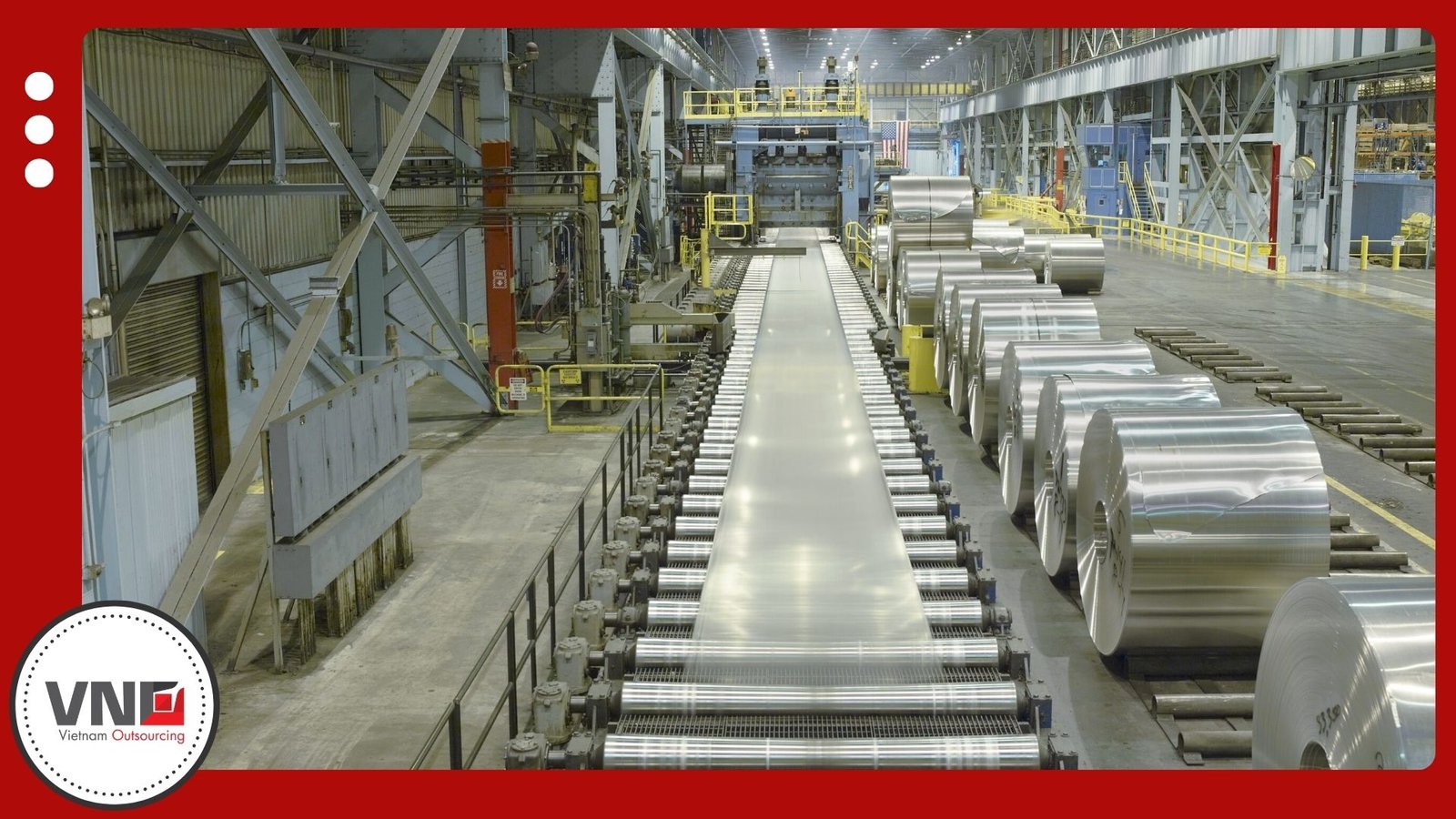Aluminum cold rolling in Vietnam has become a key process for industries that demand thin, smooth, and durable aluminum sheets. Unlike hot rolling, cold rolling happens at room temperature, which improves the strength, finish, and precision of the final product. As a result, manufacturers in packaging, construction, electronics, and automotive rely on cold-rolled aluminum to meet global quality standards. For deep insight of Vietnamese market, you might want to read aluminum manufacturing in Vietnam
Cold rolling is a process where aluminum sheets or coils pass through rollers at room temperature. The repeated pressure reduces thickness and creates a smoother surface. Because the process work-hardens the metal, the sheets gain higher strength without losing formability.

Typical features of cold-rolled aluminum include:
The steps for aluminum cold rolling in Vietnam usually include:
Therefore, cold rolling not only improves strength but also creates a consistent finish that is essential for high-end applications.
Because of its surface quality and strength, cold-rolled aluminum has a wide range of uses:
Moreover, cold-rolled aluminum is often chosen when appearance, precision, and durability are critical.
Vietnamese factories have invested heavily in advanced cold rolling mills imported from Japan, Germany, and South Korea. These facilities can produce aluminum sheets and coils with tight tolerances and high productivity.
Key advantages of aluminum cold rolling in Vietnam include:
At Vietnam Outsourcing (VNO), we connect U.S. and EU buyers with trusted Vietnamese cold rolling suppliers. Our engineering team ensures that every shipment meets technical requirements and global standards, helping clients reduce sourcing risks while gaining cost advantages.